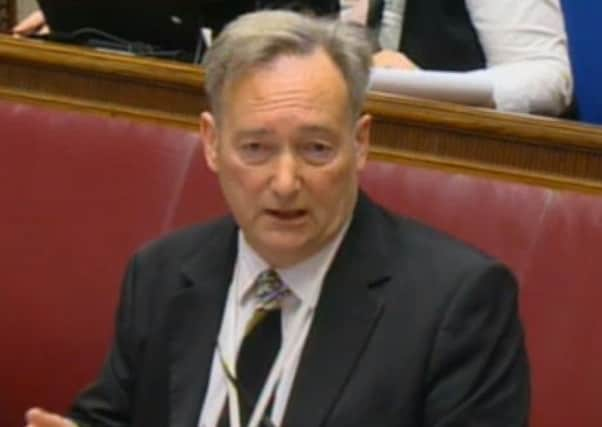RHI inquiry: civil servant accepts responsibility for some errors before scheme fell apart


John Mills, the official who was just above the two civil servants overseeing the RHI in the year before and then during its implosion, told the inquiry that repeated letters from the Whitehall minister responsible for the GB RHI scheme, Greg Barker, to Arlene Foster had come to him.
He told the RHI inquiry that there was no central collation of the messages so the clear message was lost, “a failure I acknowledge”.
Advertisement
Hide AdAdvertisement
Hide AdMr Mills said that if more attention was paid to the letters it may have alerted the department to how far it was falling behind on cost controls and it was something which “should have been done”.
Initially, Mr Mills said that it was only in spring 2015 – by which stage the budget had been breached and the scheme was running out of control – that he realised how far Northern Ireland was behind the GB scheme in terms of cost controls.
Inquiry chairman Sir Patrick Coghlin asked Mr Mills, who arrived in DETI in early 2014, about Mr Barker’s correspondence which had since 2012 been updating the department on new cost controls and the reasoning behind them.
Mr Mills said that he was unaware of that because “a lot of the correspondence which came in during my time was merely noted”, but added that “if the implication is that I should have been aware of that, I accept that”.
Advertisement
Hide AdAdvertisement
Hide AdSir Patrick said: “We also know that minister Barker had kept minister Foster up to date with the introduction of degression [cuts in tariffs], the actual effect of degression, some tweaking and amendment of degression. [Yet for] you as head of the division, there was no file containing that that you could look at?”
Mr Mills said that the letters “came in as random uncollected ... bits of ministerial correspondence and were by me, wrongly, viewed as ‘well, we don’t seem to need to answer that one – it’s just telling us stuff. Right, that’s great, that’s that one dealt with’ ... I take your point: There is no narrative; there is no joined-up narrative there to say ‘don’t you see, there’s been six of these letters; they’re doing so much, why are we not responding to this?’”.
Mr Mills also said that he had “failed to appreciate the lack of resources on RHI so I did not at some point say we need another 10 people on RHI”.
He said that he felt “betrayed” and “cross” because he had been led to believe there would be more staff to run the domestic RHI scheme – an expansion which had taken precedence to cost controls for the larger business scheme – but the staff had not materialised.
Advertisement
Hide AdAdvertisement
Hide AdHe said that his inability to even get two or three extra junior staff left him assuming that any request would be turned down.
Mr Mills said that he thought it would have been frowned upon if he had formally recorded his unhappiness at the situation. Sir Patrick said he understood how that aspect of the situation was difficult for him.
Mr Mills said sardonically: “There are 30 people [working] on RHI now and it’s closed [but at that time it was] 2% of me, a third of Stuart Wightman and half of Seamus on the non-domestic scheme at the time so it needed more bolstering.”